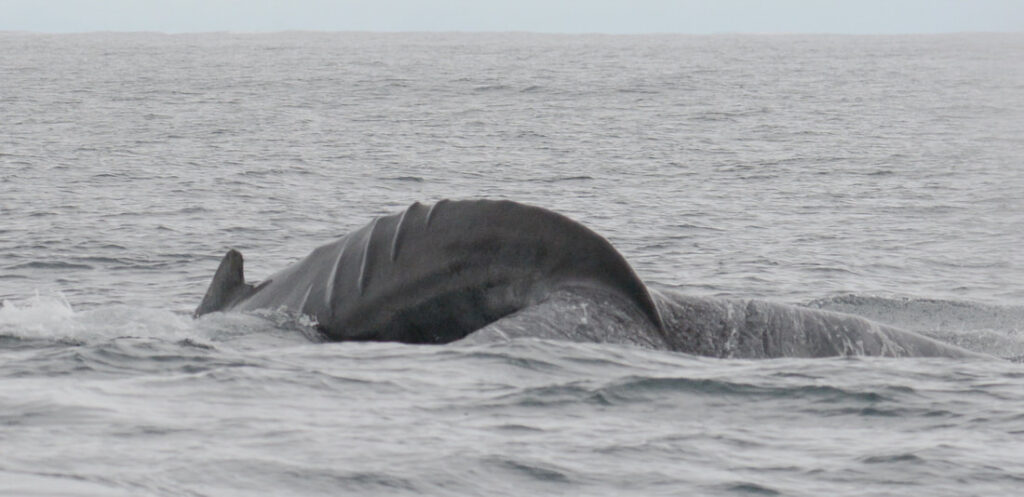Today we encountered a whale that had scars all the way down its back. The culprit? Ship propellers. Operating large machinery in this marine environment requires the utmost of caution as injuries and even fatalities can befall ocean life. For whales in particular, the larger concern is large shipping vessels as they are so big that they cannot easily maneuver to avoid hitting the whales. The propellers are also of a size that can inflict a lot of damage to these beautiful creatures. Scientists have worked on ways to mitigate this problem, and in some areas where heavy ship traffic and high whale density coexist, shipping lanes have been re-routed and ships are required to reduce their speeds in order to avoid collisions with whales.
Concerning other smaller cetaceans and marine life, such as sharks or sea turtles, smaller boats are more of an issue. The speed at which these boats travel often makes it hard for either the animal or the captain to get out of the way fast enough, inflicting serious injuries. One of the most talked about victims of smaller boats are Florida manatees. While some work has been done to protect these creatures in particular, more attention could be paid to the vast array of animals that this threat affects, such as seals and sea lions, dolphins, sea turtles and sharks. The ocean’s biodiversity is wonderful and astoundingly beautiful and we need to protect it from ourselves. The marine ecosystem needs biodiversity in order to function properly; every species plays a key role. Eliminating or harming one of these roles can have profound effects on other species in the ocean.
So remember: when operating a boat please be sure to drive with caution to avoid harming our beautiful wildlife! Hopefully there will come a year when we don’t see any propeller scars! Let’s get to work!



